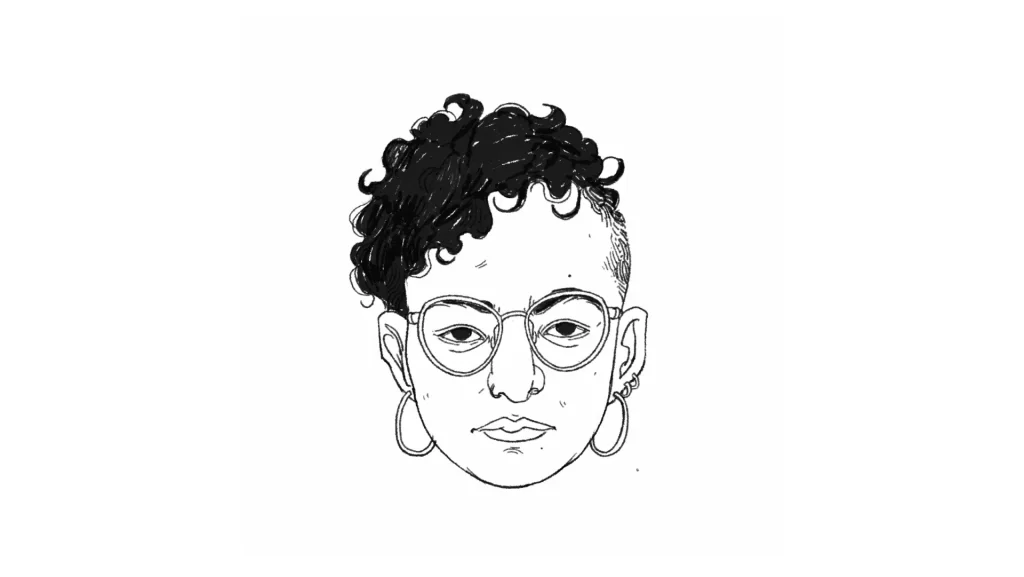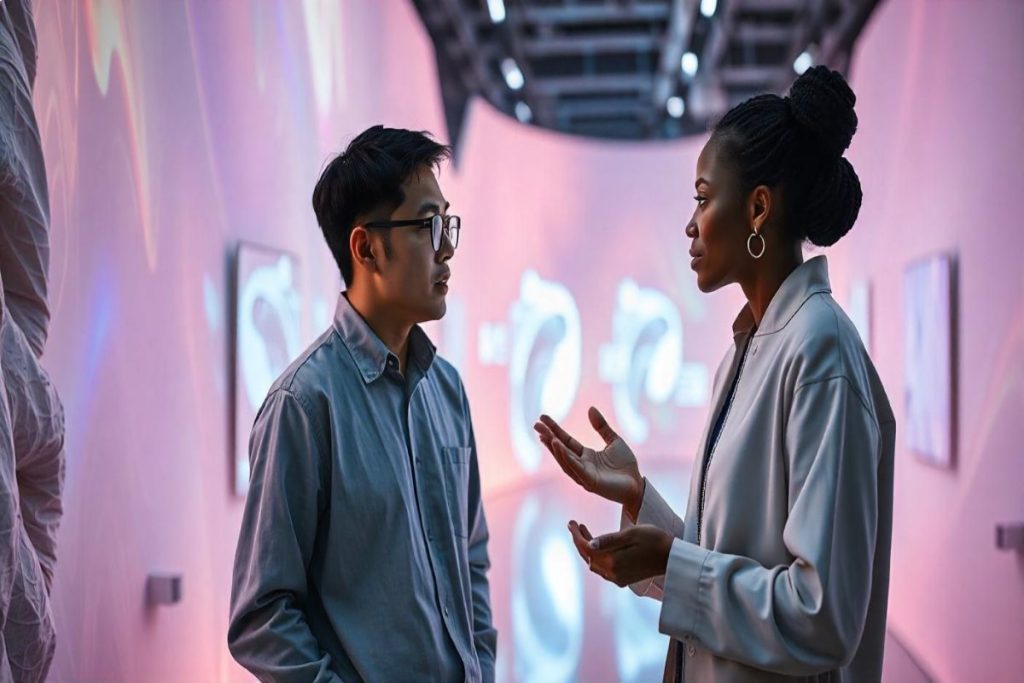Authority Essays, a groundbreaking collection by Andrea Long Chu, offers an incisive exploration of contemporary literary criticism, merging personal insights with rigorous analysis. Since joining New York magazine as a staff critic, Chu has captivated readers with her distinctive approach to gender politics and cultural discourse, leading her to win the Pulitzer Prize for criticism. Her essays dissect the intricacies of literature while addressing larger societal issues, such as identity and self-perception. In her recent works, including her review of Rachel Cusk’s “Parade,” Chu skillfully unpacks the nuances of female experience and self-identity, prompting readers to confront their own biases. Through her engaging style and unapologetically candid observations, Authority Essays challenges the norms of literary consumption, inviting a deeper understanding of the intersections between art and personal politics.
In her influential collection of writings, Authority Essays, Andrea Long Chu delves into the realm of literary theory and critique, offering a fresh perspective on the complexities of modern literature. As a prominent voice in discussions surrounding gender identity and political expression, her essays serve as both a mirror and a challenge for those engaging with contemporary texts. By analyzing the works of major authors within the context of personal desires and societal expectations, Chu’s criticism emerges not merely as academic discourse but as a vital conversation about identity and truth. With her background in literary studies and a sharp eye for the intricacies of narrative, Chu’s insights resonate with a wide audience, bridging the gap between literary criticism and everyday experience. Ultimately, Authority Essays stands as a significant contribution to the ongoing dialogue about power, authorship, and the role of the critic in our society.
The Ambition of Andrea Long Chu in Literary Criticism
In her collection “Authority: Essays,” Andrea Long Chu presents a unique blend of personal insight and sharp critique, aiming to create an intimate reading experience. This ambitious approach invites the reader to engage with the complex thoughts Chu has on literature and gender politics, reflecting her background in literary criticism. Her work often pushes the boundaries of traditional reviews, as seen in her analyses of writers like Rachel Cusk, where Chu not only critiques the narratives presented but also the underlying societal norms that shape these literary works.
The duality in Chu’s ambition—seeking to articulate the reader’s internal thoughts while also challenging them with new perspectives—can feel both captivating and overwhelming. Critics may find her methodology ambitious, if not slightly defeatist, as she seeks to engage with the unspoken beliefs that often lie beneath the surface of literary discourse. Living up to her title of a critic for New York magazine, she doesn’t merely provide literary assessments; she also dissects the motives, pressures, and politics surrounding the authors and their works, revealing the intricate fabric of modern feminism and its implications on gender identity.
Gender Politics in Literature: Insights from “Authority: Essays”
The discourse surrounding gender politics in contemporary literature has become increasingly complex, and Andrea Long Chu navigates this landscape with striking clarity in her essays. Through her critique of Rachel Cusk’s work, she explores the implications of self-identity and the patriarchal pressures that influence how women value themselves and their artistic contributions. Chu’s interpretation suggests that Cusk’s characters reflect a struggle that many women face: the desire for freedom while grappling with societal expectations of motherhood and femininity. This perspective invites readers to reconsider the narratives that dominate female authorship and the ways these stories mirror the broader cultural anxieties surrounding gender.
By framing her essays within the context of gender politics, Chu not only critiques individual authors but also challenges the literary community to reevaluate its own biases and assumptions. Her discussions around essentialism and self-hatred in women’s representations force readers to confront uncomfortable truths about how gender identity is perceived and valued in art. In presenting her views so directly, Chu elevates the conversation around feminism within literary criticism, urging her audience to think critically about the narratives we embrace and the implications they hold for our understanding of gender politics.
The Role of the Critic: Personal vs. Political
One of the most compelling arguments in Andrea Long Chu’s “Authority: Essays” is her assertion regarding the personal nature of criticism. Chu believes that a critic’s role is not merely to analyze texts from a distance, but to engage deeply with the political and emotional landscapes that inform those texts. She posits that criticism should be as much about the critic’s personal values and experiences as it is about the works themselves. This perspective challenges the traditional notion of neutrality in literary criticism, which often leans toward detachment and objectivity.
By blending personal narrative with literary analysis, Chu effectively disarms readers of their preconceived notions about what constitutes valid critical discourse. Her approach paves the way for a new understanding of criticism as a vibrant dialogue between the critic and the text. This engagement is evident in her critiques of prominent writers and the social implications of their work—an effort that seeks to hold both the author and the critic accountable to the evolving sociopolitical landscape. Such a perspective encourages other critics, particularly those navigating similar themes of gender and identity, to adopt a more personal and involved approach.
Rachel Cusk and the Poetics of Self-Hatred
In her insightful review of Rachel Cusk’s writing, Andrea Long Chu delves into the intricacies of self-hatred as a core theme. By examining the complex portrayals of female characters in Cusk’s novels, Chu sparks a critical conversation about the societal pressures women face in articulating their identities. She points out that Cusk’s metaphorical framing of herself as a “self-hating transvestite” encapsulates a broader, troubling narrative where female identity is often at odds with societal expectations. This analysis serves as a lens through which readers can explore the depths of personal struggle that many women endure.
Chu’s exploration of self-hatred does not merely function as an isolated critique of Cusk but situates it within the larger discourse on feminism and identity politics. By tying Cusk’s literary representation back to essentialist views of gender, Chu reveals how such constructs can diminish women’s artistic voices by confining them to cultural stereotypes. This discourse helps in understanding how societal norms influence not just individual identity but also the collective narrative of women’s experiences in literature, beckoning a reconsideration of how female writers are read and critiqued.
The Power Dynamics of Literary Criticism
Andrea Long Chu’s approach to literary criticism highlights the power dynamics inherent in who gets to speak about whom in the realm of literature. Her critiques often reveal the tension between established authors and emerging voices, as seen in her analyses that question the motivations and authority of well-known figures like Zadie Smith and Maggie Nelson. Chu is unafraid to confront these literary giants, suggesting that their privilege can influence how they engage with themes of controversy and censorship. This very dynamic not only sheds light on the hierarchy of voices but also raises questions about the inclusivity of literary criticism.
Furthermore, Chu’s criticism serves as a reminder that the act of reviewing literature is as much about authority as it is about content. By addressing the “far center”—those who hold political power in literary discussions—she challenges the status quo and encourages a more robust engagement with diverse perspectives. This vantage point urges critics to not only examine the texts but to scrutinize the power structures that support certain narratives over others. Through her incisive critique, Chu invigorates the conversation around authority in literary criticism, advocating for a balance of perspectives that accounts for those often marginalized in mainstream discourse.
Receiving the Pulitzer Prize: A Reflection on Criticism
Winning the Pulitzer Prize for criticism marked a significant moment in Andrea Long Chu’s career, further establishing her as a potent voice in literary discourse. This accolade acknowledges not just her talent in writing but also her capacity to provoke thought and challenge normative critiques of literature. Her work exemplifies how personal investment can enhance critical analysis by offering readers insight into her unique viewpoint on the complexities of literature and the authors behind it. Chu’s criticism often engages with deep sociopolitical themes, becoming a conduit for discussions on both art and ideology.
The reception of her Pulitzer Prize underscores the larger implications of her work—suggesting that contemporary criticism must embrace a blend of personal experience and rigorous analysis. By eschewing traditional detachment, Chu’s awarded critiques resonate with audiences seeking authenticity in literary discussions. Her ability to interrogate the intersection of literature and real-world concerns reflects a modern approach to criticism that resonates with today’s readers, positioning Chu as a central figure in the evolving narrative of literary analysis.
The Ambivalence of Politeness in Literary Discourse
A striking feature of Chu’s criticism is its ambivalence toward polite discourse. She argues that while civility is often valorized in critical conversations, it can sometimes serve to dilute the necessary tensions that arise in literary critique. By embracing a more confrontational style, Chu challenges the expectation for critics to maintain a veneer of politeness, advocating instead for a raw and honest discourse that reflects the complexities of the texts being discussed. This shift in approach not only revitalizes criticism but also mirrors the tumultuous political climate in which literature is produced and consumed.
In this sense, Chu’s work calls for a reconsideration of how we define good criticism. Rather than viewing politeness as an essential trait of a critic, she invites her audience to appreciate the value of provocation and impoliteness as tools for deeper engagement. This methodology elicits more profound conversations, pushing both critics and readers to confront their own biases and assumptions. By virtue of her unapologetic style, Chu cultivates a literary environment where critique becomes a dynamic dialogue rather than a static evaluation.
The Illusion of Neutrality: Critique as a Political Act
In “Authority: Essays,” Andrea Long Chu tackles the prevailing notion of neutrality within literary criticism, arguing that claims of impartiality often mask the inherent bias that accompanies every critical evaluation. She suggests that the desire to maintain neutrality is itself a political position, one that can hinder the exploration of deeper truths within art and literature. By exposing this flaw, Chu highlights the critical responsibility that critics have in acknowledging their own perspectives and how these inform their analyses.
Emphasizing the inextricable link between art and politics, Chu proposes that a critic’s role is to scrutinize the political undercurrents present in literary works rather than pretending they are non-existent. This assertion challenges the very foundation of what it means to engage with literature, urging critics to embrace their subjectivity. In doing so, Chu calls for a transformative approach to literary criticism that celebrates the nuance and complexity of both art and the dialogues surrounding it.
Chu’s Personal Politics: A Critique of Liberalism
Andrea Long Chu’s political orientation can be complex, often threading the lines of liberalism while simultaneously critiquing its limitations. In “Authority: Essays,” she openly grapples with the idea of desire and its social implications, arguing against a purely liberal interpretation of freedom that disregards the societal structures in which people operate. Her insistence on viewing desire through a political lens challenges the condition of sexual liberalism, positing that individual desires cannot be separated from their political consequences.
By dissecting her own political beliefs, Chu invites critics and readers alike to question the efficacy of liberal ideals in fostering genuine equity. This introspection does not merely settle on critique; it serves as a call to action, urging a reevaluation of how freedom is perceived and implemented in conceptual worlds. Through this lens, Chu becomes an advocate for a deeper understanding of political expression within desires, thereby underscoring the intricate interplay between personal choice and collective responsibility.
Frequently Asked Questions
What are the main themes explored in Andrea Long Chu’s ‘Authority: Essays’?
Andrea Long Chu’s ‘Authority: Essays’ delves into themes of gender politics, literary criticism, and the role of personal experiences in critiquing literature. Chu critiques renowned authors, including those featured in New York magazine, discussing their perspectives on gender and art, while challenging the norms of traditional criticism.
How does Andrea Long Chu address gender politics in ‘Authority: Essays’?
In ‘Authority: Essays,’ Andrea Long Chu confronts gender politics by examining the essentialist views of notable writers, notably Rachel Cusk. Chu critiques the belief that women must align their art with motherhood, presenting a strong argument for the diversity of female artistic expression, thereby elevating debates surrounding gender identity and artistic freedom.
What impact has Andrea Long Chu’s criticism had on contemporary literature?
Andrea Long Chu’s criticism, awarded the Pulitzer Prize, has significantly influenced contemporary literature by pushing boundaries in literary discourse. Her essays encourage readers to engage with the political dimensions of art, inviting a reevaluation of how gender and identity shape literary critique.
In what way does ‘Authority: Essays’ challenge traditional literary criticism?
‘Authority: Essays’ challenges traditional literary criticism by prioritizing personal narratives and political context over neutrality. Chu argues that critics must acknowledge their biases and the societal implications of their opinions, which disrupts conventional approaches to literary evaluation, especially in her critiques published in New York magazine.
How does Chu’s writing style in ‘Authority: Essays’ contribute to her arguments?
Andrea Long Chu’s writing style in ‘Authority: Essays’ is engaging and provocative, combining humor with serious critique. Her magisterial tone fosters a dynamic reading experience, compelling audiences to confront uncomfortable truths about gender and artistic expression, thus reinforcing her stances on gender politics and literary authority.
What controversies surround Andrea Long Chu’s discussions of desire and trans issues in ‘Authority: Essays’?
Andrea Long Chu’s discussions of desire and trans issues in ‘Authority: Essays’ spark controversy due to her unorthodox views on gender identity. By challenging the mainstream understanding of transness and asserting that desire is central to identity, Chu has raised critical debates within feminist and LGBTQ+ communities, often aligning her positions with libertarian principles on individual freedom.
Why is ‘Authority: Essays’ considered significant in recent literary criticism?
‘Authority: Essays’ is significant in recent literary criticism because it embodies a shift towards more politically charged critiques. Andrea Long Chu’s bold examinations of gender and power dynamics in art encourage a new generation of critics to embrace personal viewpoints, thereby challenging established norms in the landscape of literary criticism.
What reception has ‘Authority: Essays’ received from critics and readers?
‘Authority: Essays’ has received a mix of acclaim and critique, with many praising Andrea Long Chu’s fearless approach to literary criticism while others argue against her perceived harshness. Critics often highlight her ability to provoke thought and discussion on gender politics and artistic freedom, drawing both admiration and controversy.
How does Andrea Long Chu’s background influence her essays in ‘Authority’?
Andrea Long Chu’s background as a comparative-literature Ph.D. student informs her critical approach in ‘Authority: Essays.’ Her academic insights, combined with her personal experiences regarding gender, enable her to engage deeply with themes of identity and critique, fostering a unique perspective within contemporary literary criticism.
| Key Points |
|---|
| Andrea Long Chu discusses her goal in literary criticism and the impact of her writing. |
| Chu critiques Rachel Cusk’s approach to gender and motherhood in her novel “Parade.” |
| Chu’s confrontational style often leads to polarized reactions and critiques of well-known authors. |
| Chu was awarded the Pulitzer Prize in 2023 for her book reviews that hold authors accountable. |
| In her essays, Chu argues critiquing art without acknowledging its political implications is impossible. |
| Chu advocates for personal and unapologetic criticism, reflecting her leftist views in contrast to liberalism. |
| She believes more critics should write with conviction, as seen in her review style. |
| Chu’s perspectives on free speech and desire are seen as controversial but rooted in her liberal beliefs. |
Summary
Authority Essays explores the evolving landscape of literary criticism through the lens of Andrea Long Chu’s work, which challenges traditional views on gender and art. Chu’s bold and often contentious critiques aim to draw out deeper political implications of art, emphasizing that art cannot exist without its political contexts. This dynamic collection showcases Chu’s journey as a critic who holds authoritative opinions, instigates debates, and advocates for a more personal, engaged form of literary criticism. The discussions open avenues for broader conversations surrounding gender politics and creativity, urging readers to reassess the relationships between art and societal expectations.



